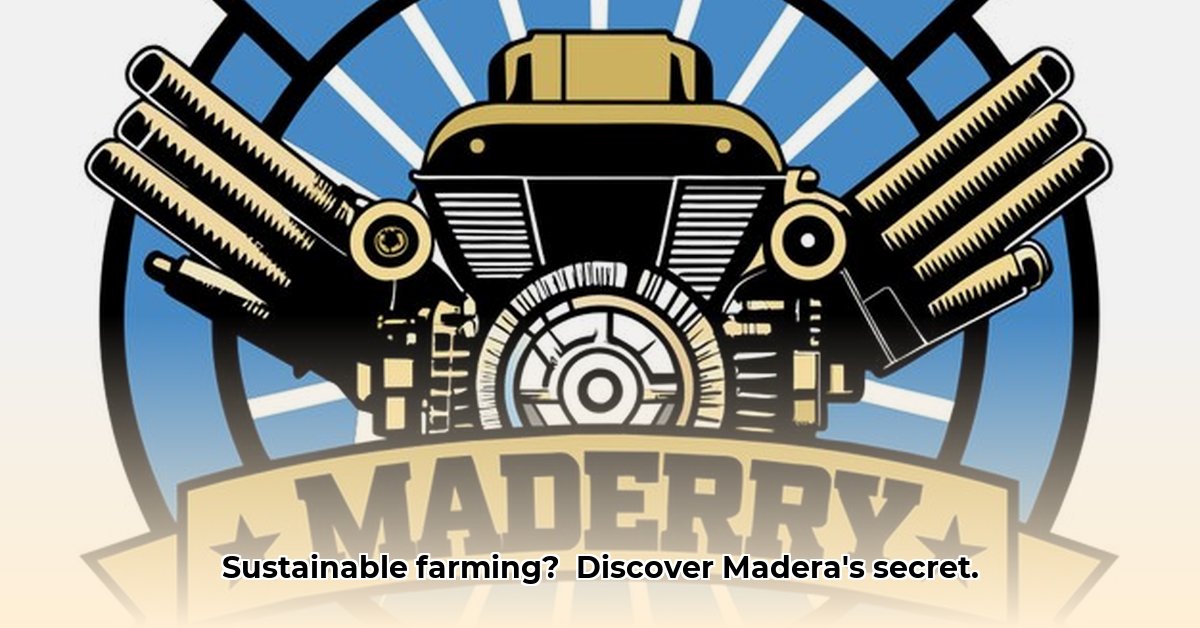
Tractor Supply Company (TSC) in Madera, California, stands as a vital resource for the local agricultural community, providing farmers with essential supplies. But how effectively does this agricultural giant promote sustainable farming practices? This article explores TSC Madera's role, examining its current offerings, evaluating its sustainability efforts, and suggesting actionable steps toward a greener future for the Central Valley. For more information on local TSC locations, visit this helpful site.
Tractor Supply's Madera Location: A Hub for Farmers
The Madera TSC serves as a central hub for farmers, ranchers, and home gardeners alike. Its wide selection, ranging from livestock feed and fencing materials to seeds and tools, underscores its significant role in the local agricultural ecosystem. However, the extent to which TSC actively promotes sustainable farming practices needs further examination. What percentage of its products support ecological responsibility? This question forms the core of our investigation.
TSC's Product Offerings: Sustainable Choices and Gaps
TSC in Madera likely stocks a variety of products relevant to sustainable agriculture. This may include organic animal feed, water-efficient irrigation systems, and perhaps even seeds from local, sustainable producers. However, assessing the proportion of such products to the overall inventory remains a challenge due to a lack of readily available data. Can TSC provide a breakdown of its sustainable product offerings? This transparency is crucial for evaluating its environmental commitment.
Example: While a variety of organic seeds might be available, are they prominently displayed and clearly labeled as such? Detailed information on product sourcing and manufacturing processes is currently lacking, making it difficult to gauge TSC’s genuine investment in sustainability.
Analyzing TSC's Sustainability Initiatives: Room for Growth
While TSC offers some products aligning with sustainable practices, a significant area needing improvement is data transparency. The company lacks readily accessible information regarding its overall environmental impact. What is their carbon footprint? How are their products sourced, packaged, and transported? Providing this data is essential for building consumer trust and fostering accountability.
"A comprehensive sustainability audit is crucial," says Dr. Emily Carter, Professor of Environmental Science at California State University, Fresno. "This audit should evaluate TSC's supply chains and measure their carbon footprint. This information, disseminated publicly, would be a massive step towards transparency."
Tractor Supply and Local Farmers: A Collaborative Opportunity
TSC’s Madera location plays a critical role in supporting local farmers, especially smaller operations. Readily available supplies at competitive prices directly impact their livelihoods and ability to thrive. However, many farmers are increasingly seeking sustainable solutions, which may not always be readily available or clearly labeled at TSC.
"As a small-scale farmer, I rely on TSC for many supplies," notes Maria Rodriguez, owner of Rodriguez Family Farms in Madera. "However, finding truly sustainable options, clearly labeled and readily available, is still a challenge." This highlights the need for improved communication and collaboration between TSC and its local customers.
Recommendations for a More Sustainable Future
Enhancing TSC's commitment to sustainable agriculture requires a collaborative effort. Here are some actionable steps:
Conduct a comprehensive sustainability audit: This thorough assessment of TSC's supply chains, from sourcing to packaging, is vital. This could involve a third-party evaluation to ensure objectivity and build consumer confidence.
Increase transparency: Publicly sharing the audit's results, providing specific data on sustainable product selection and environmental impact, would improve accountability.
Expand sustainable product lines: Actively seeking and stocking more environmentally friendly products with clear labeling to facilitate consumer choices.
Engage with local farmers: Establishing direct communication channels with farmers to understand their sustainable product needs. This might involve surveys, focus groups, or town hall meetings.
Implement an educational initiative: Partnering with agricultural extension offices to offer workshops and educational materials on sustainable farming practices. This could involve in-store workshops or online resources.
Conclusion: A Shared Vision for a Greener Future
The future of sustainable agriculture in Madera is closely linked to Tractor Supply’s actions. By embracing environmental responsibility, TSC can strengthen its partnership with local farmers and contribute to a healthier community. The potential for positive change is significant, requiring a shared vision, collaborative action, and a collective commitment to responsible stewardship. The time for action is now.